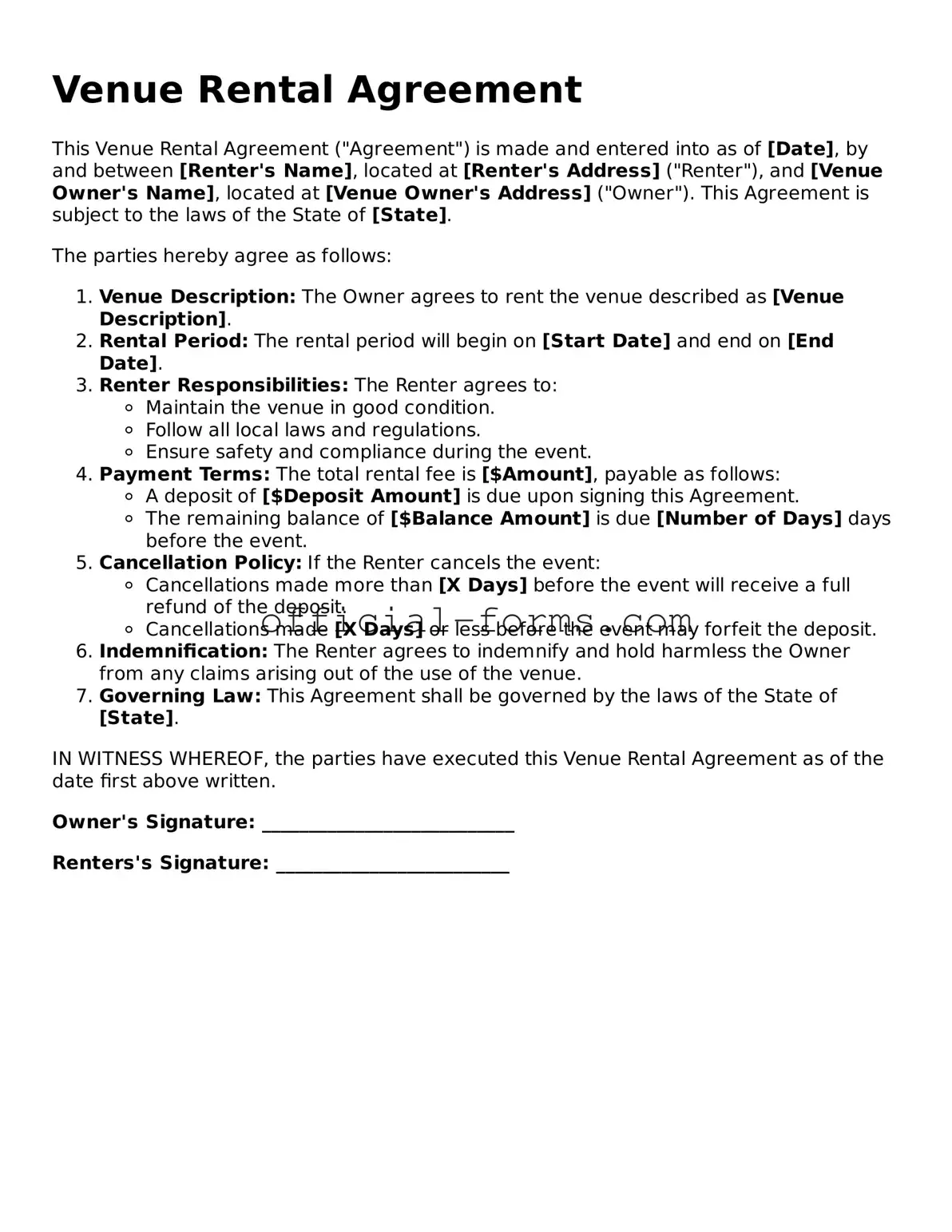Attorney-Verified Venue Rental Agreement Template
A Venue Rental Agreement form is a legal document that outlines the terms and conditions for renting a space for events such as weddings, parties, or corporate gatherings. This agreement serves to protect both the venue owner and the renter by clearly stating the responsibilities and expectations of each party. Understanding this form is essential for anyone looking to secure a rental space for their upcoming event.
Open My Venue Rental Agreement Now

Attorney-Verified Venue Rental Agreement Template
Open My Venue Rental Agreement Now
Don’t leave your form incomplete
Finish Venue Rental Agreement online quickly from start to download.
Open My Venue Rental Agreement Now
or
➤ PDF
